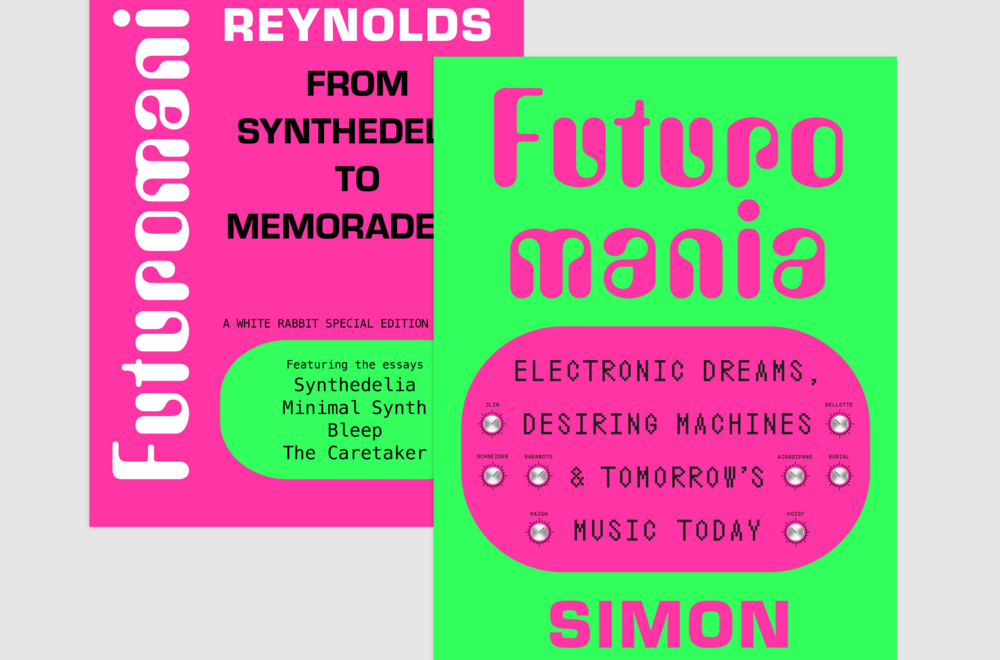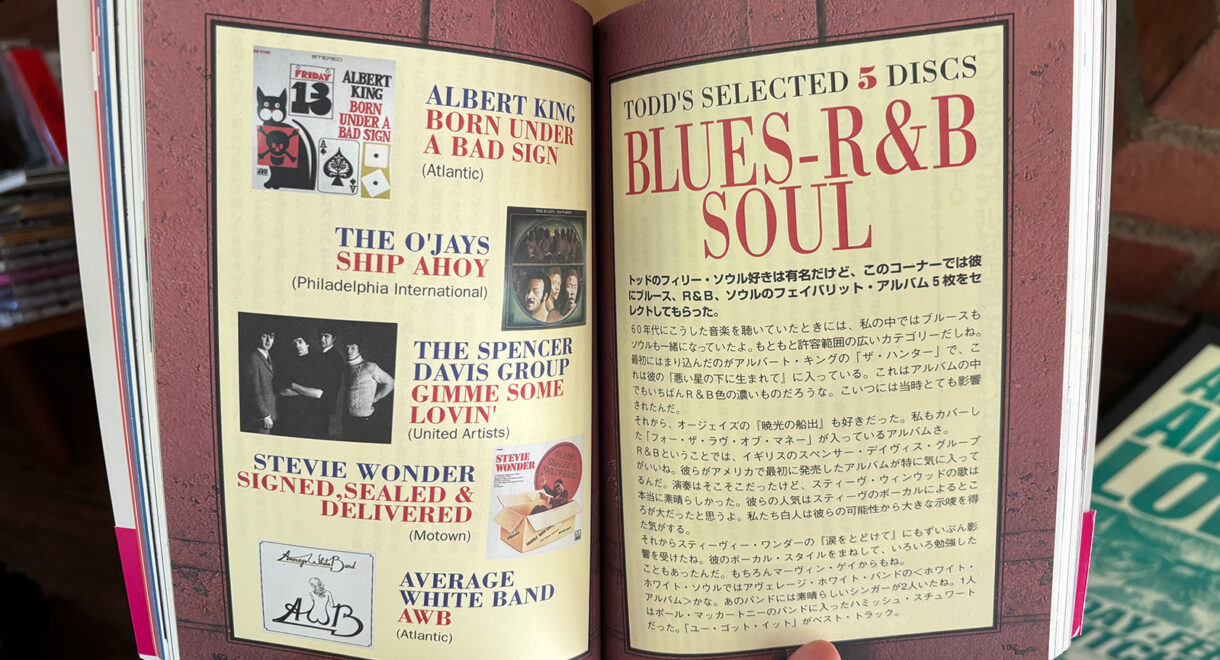The summer is halfway over and you’ve been scrolling for like, what, six weeks straight now? Step away from your phone (after reading this, of course). An analog […]
Labels We Love: Squama Recordings (Munich)

Fish scales. Video Stores. Jazz. The multi-layered world of Munich-based label Squama Recordings.
Martin Brugger is a producer and bass player for the modern jazz quintet Fazer. Max Schachtner is a graphic designer and part of the respected design consultancy Daily Dialogue. Together, the two utilize their respective talents to operate Squama, a record label born out of necessity.
Based in their hometown of Munich, the label is coming up on its third year of operating and has just recently put out its eighth record, with its ninth set for release soon in Spring 2021. Throughout the label’s short but diverse and eclectic run, the artists and projects released have beeen either of the band Fazer or side projects of its players. ISC Team member Jonny Mons caught up with Max and Martin over video chat to find out what’s in store for the label’s future and to further familiarize fans with Squama. The following conversation has been edited for length and clarity.
In Sheep’s Clothing: How did the label come to be and what were you both up to musically or artistically before the formation of Squama?
Martin Brugger: We’ve known each other for about six or seven years now and worked together on a few projects, like some music that I put out and Max would do the artwork. We also did a show on Radio 80000 together.
The label started with the first record of Fazer. We started the band and did a few recordings and ended up having this album, then we were looking around for labels to put it out but nothing really caught on so we decided to just go full DIY and put it out ourselves and that worked really well. Max did the artwork back then and I did most of the contact with the distributor and the basic label work.
Then we recorded another Fazer record, Nadi, with a band in late 2018 and it was again the question of do we want a bigger label to put this out? We ended up deciding to do it ourselves. That was actually the moment when Max and I decided to found the label so that became the first actual release of Squama.
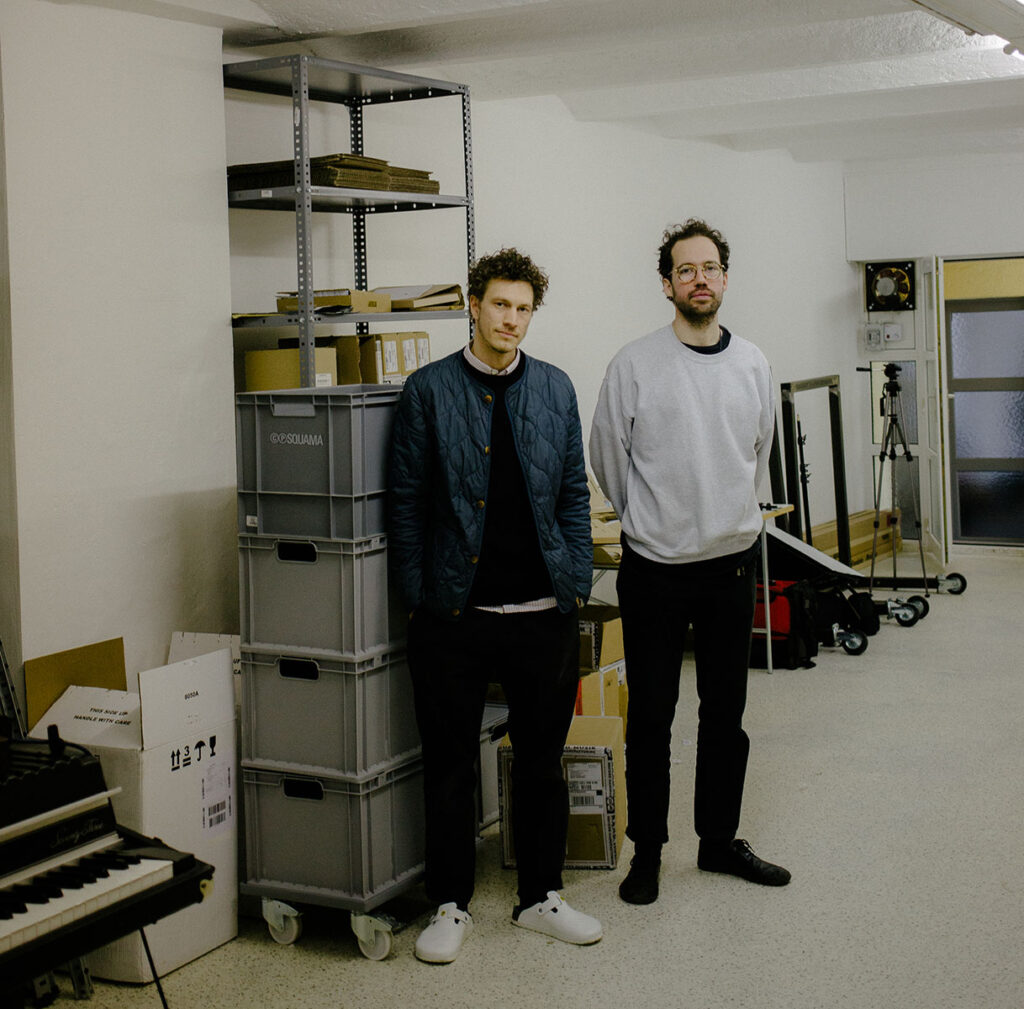
Where does the label name come from? What does Squama mean?
Max Schachtner: It was for the album Nadi, and Nadi had this overall idea of dealing with fish because they recorded the record in a fish factory. Every time I have to do artwork I’m searching for something like a starting point and fish was the topic for Nadi. So when we needed to find a name for the label, which was a very disturbing and not fulfilling process, we liked how Squama sounded and how it was written. If I remember right in Latin it means something like “multi-layered or the skin of a fish.”
Martin: In English it’s “fish scales.”
Max: Fish scales.
Martin: The German word is Fischschuppen and it’s also like this pattern. Yeah.
Max: Pattern and multi-layered and stuff like that.
Martin: In the end you have to come up with a name that just sounds good, feels good and has the vibes of everyone involved. We came up with a few suggestions and this one just stuck.
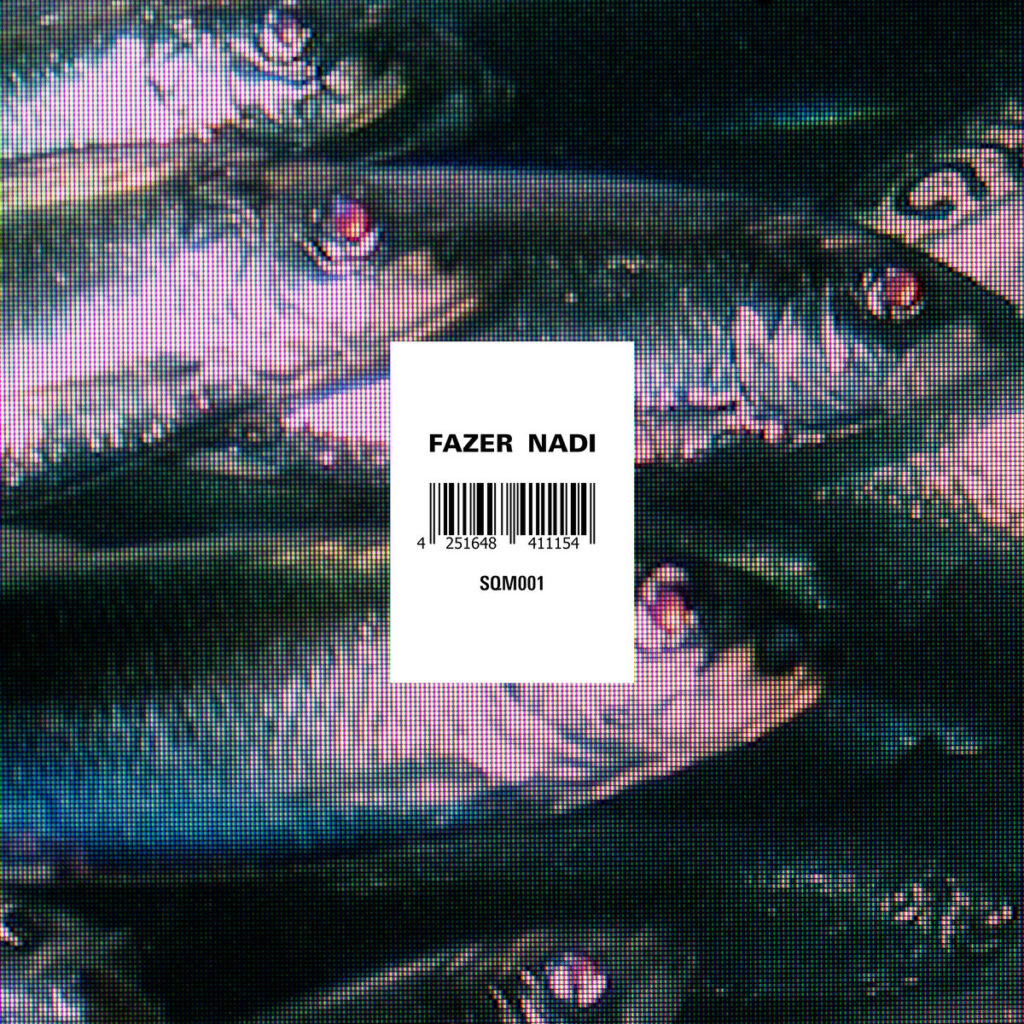
So far what you’ve released has pretty much been Fazer and the band’s network, right?
Martin: That wasn’t initially the plan, to keep everything within the family for the first eight releases. It started with the Fazer records and then the guys from the band like Simon (drums) and Paul (guitarist) just started to come up with this beautiful music. So we figured, why not just work with this for a start? If there’s enough good music to put out we want to do it, and want to encourage everyone involved to get creative.
It’s nice to be able to provide this perspective because a lot of folks would just record an album, go pay for a studio, burn it on the CDs and sell it at their gigs and that’s the end of the story. I think and hope it’s nice for the guys like Simon, Paul and the trumpet player Matthias — who we’re going to have an album out by soon — to have this label in us that works on a on a professional level and is able to get the records out there, as far as LA apparently.
What’s the live music scene like in Munich? Is there an important venue for jazz?
Martin: When it comes to jazz there’s basically just one club called Unterfahrt and they’re doing really good work. Before the pandemic they used to have concerts every day of the year, and when the lockdown hit they managed to adapt really fast and prove more flexible than the average German. They totally rebuilt the stage and set up cameras, got a video director and started streaming shows two or three times a week and since then they have quite a few ardent supporters. They managed to really pay the artists who played, which was very uncommon during last year. Sometimes folks online donated so much that you would get more for one of the live-streamed gigs without an audience then you would have gotten playing live with an audience — which was really essential for the scene and for some.

Max: It’s also important to say that the Unterfahrt jazz club is like … I don’t know the English word for it. Martin, you know the word verein? It’s like a community thing where you pay a monthly rate, so for them when the pandemic hit it wasn’t really a problem because it was not so much about getting entrance fee it was more about having a community that built and keeps the whole thing going. In general that’s a cool thing to see, that if you build a system on some idea like that it can live on even in those times.
Martin: You can get a membership at Unterfahrt for I think either 12 or 24 euros per month and you get discounted entry fees on all the shows. That’s how they run everything.
Not to veer too far off topic, but where are you guys actually at with lockdown right now?
Martin: They are trying to slowly open back up now but you kind of get the feeling that we’re gonna be back to lockdown in about two or three weeks.
Are things open right now for indoor events?
Martin: No. They’re thinking about outdoor areas at bars and restaurants maybe, but I think indoor dining is probably still like at least two or three months away.
All the art that happens with the label is pretty much just you Max?
Max: Yup [but] not when it comes to video stuff and photography. Sometimes I do it but in general the basic or the underlying concept for how everything should turn out in the visual communication. That’s my part.
That's a good collaboration to have -- you each know what you have to worry about.
Max: Yeah for us it’s cool because when you do full albums it’s really interesting to really think of what this album is about and then develop an identity for the record. More or less like how you communicate — how it looks, how you can do advertising, how you can do merchandise, how the design is, if you can add some assets. Have you gotten a chance to have Martin’s record in your hands?
Yeah I did, it's really great.
Max: That was a good example of what we like to do. Like you can have this full range of stuff that you can put into one thing like that. For Music For Video Stores we put all these assets in photographic prints and text from somebody. That record was really about associations of what this record could be, like a soundtrack for everyone’s imagination maybe. For the Runden record, for example, it was like this whole idea of running, or like time in that sense. We had these videos of Martin’s brother Johannes running. Yeah, it’s just nice to always find one idea for one record and then try to have some fun in that area and then go to the next one.
Martin: Since Max is a lot more of the art guy and I’m more of the music guy and also the producer for some of the records, I will be in the studio and work with the artist on the music and then in the end when the record is there it’s nice to see and know what everyone brought to the table, you know? So in the end every record is a really good and nice representation of the two people running the label.
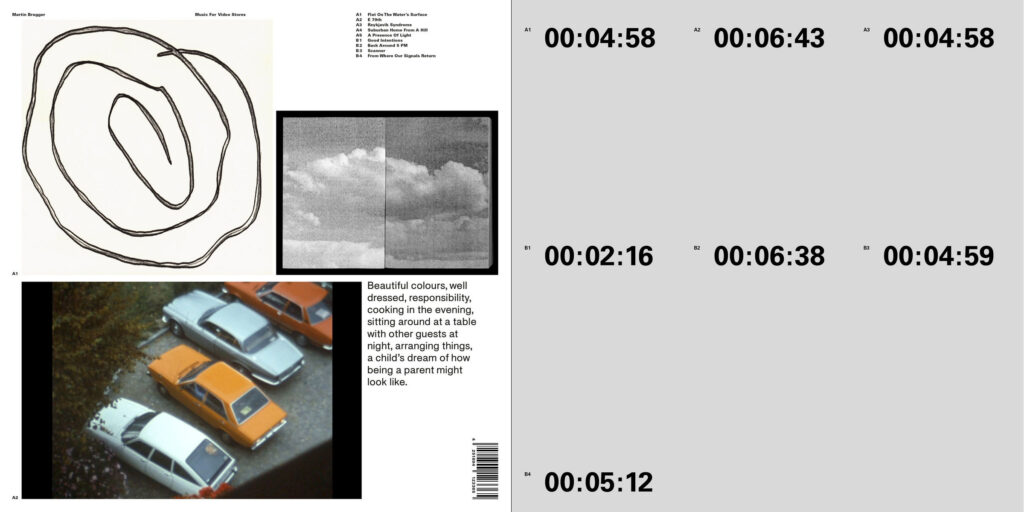
Would you say there's like a sound for the label or something you have in mind that you guys are going for?
Martin: I wouldn’t say there’s a certain genre but I think we tend to like everything with a certain minimalist approach. We’ve got two records by Fazer drums which is just two drums, and we’ve got the record by Enji coming up which is no drums and is also a kind of subtractive concept. The artwork is also supposed to be focused and stripped down. That may be like the theme of the label in a way.
Generally, genre-wise we don’t want to limit ourselves too much which is also why we stop short of calling ourselves a jazz label. Although that would probably make matters a little easier on the marketing side of things right now.
We want to be open to put out remixes or to put out a record like my solo record, which you probably wouldn’t do when you identify as a jazz label.
Max: I think what we both always try is to not do the obvious thing. Not just taking it minimal or stripped down or however you want to call it, but really like thinking one step further of what you could do and what I like. At least that’s what I can say when I talk or I think about my design and I think that’s an approach that Martin is having in mind when he’s writing music or producing.
Martin: Yeah that’s definitely something we have in mind when we’re thinking about lineups for records. With the Enji record, the obvious thing would be to have her be the singer, get a drummer, a bass player and a pianist. But then we’re like “Hey let’s try to do it without drums. How’s that going to sound?” and then you just set your limits and then you make it work within these limits. That is, on many levels, how we work.
In the end, these limitations are how it all started with the lineup of Fazer because having two drummers but no pianist or keyboard player there’s a lot of space in between that needs to be filled up in some way and you gotta get creative and just make it work.
But without being overly conceptual..
Martin: Yeah, no. In the end we do want to put out music that people like to listen to and not just study or brag about listening to to art students or whatever.
What do you have planned for the year, release-wise?
Martin: The next record is gonna be the release by Enji and then we’re putting out the second solo album by Simon (Popp). I don’t know if you’ve heard the first one. It’s like this kind of fourth world production — minimal music kind of stuff. We’ve got a remix EP for a track off his record with remixes by Stenny from Illian Tape here in Munich and Ciel from Toronto, who’s a part of Discwoman. Then we have a trio record coming up by Matthias Lindermayr, the trumpet player for Fazer, which is also going to be really good. No spoiler. Then the next thing we’re gonna record is another trio by Paul, Simon and me, so again another family record.
We have a few records in in the making that are still at this point too early to talk about before anything is recorded, but generally we’re trying to keep up the pace and put out as many records as possible, because there’s so much good music and so much potential that needs to be heard and we want to do this justice.
Yeah three or four right now projected that's pretty good, that’s a lot coming.
It is a little hard right now because all the pressing plants take probably three times as long to produce a record as it would pre-pandemic so you gotta work yourself ahead of time a little.
But it's not changing how you're working on music, is it?
Martin: Not really. It’s just that some things happen to take longer now. Adapt and overcome.
Max: Yeah but we of course are always thinking about at what time of a year a certain record fits better. Like with the Enji record, it would have been nice if it wasn’t coming out in May. It would’ve been cool if it was out in March. These things are a bit annoying that you now have to think so far ahead if you want to put something out at a certain time.
Martin: Yeah but then also there are some pre-pandemic rules that don’t necessarily apply that you don’t have to abide by anymore. For example, before everyone would say that you cannot put a record out in August because everyone’s out and no one will hear it. I feel like that was not the case last year and probably is not going to be the case this year. So in a way you get back a little flexibility because everything’s still shaking up. As I said, we’re just trying to adapt and put out good work and make it work.
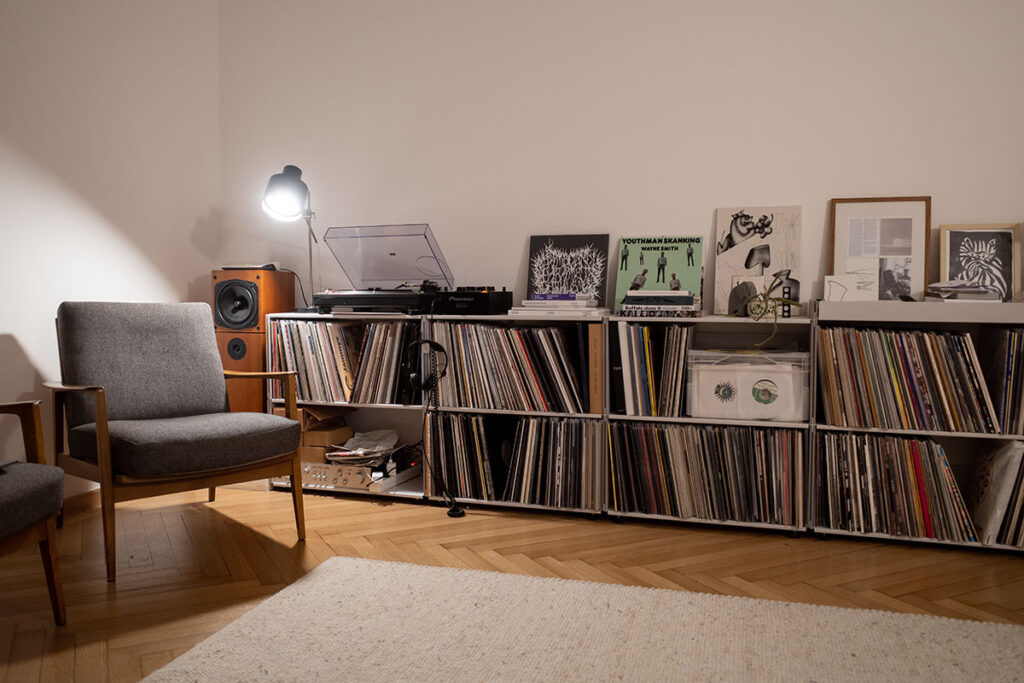
I see you have a DJ set up behind you, Max, but with just one turntable.
Max: I had it set up with two turntables for years and that now we moved into a new apartment I decided not to have two anymore because I won’t use it and it’s too much space, but yeah.
This is your home listening setup right here?
Max: Yeah this is what I have now but it’s nice because I always had it like in a good height so that I could stand and play the records but now it’s at this good height for sitting in a chair and listening to records with headphones.
2021 vibe.
Martin: Yeah Max is actually a really good DJ. When I got to know him back in the day he would just randomly record one-hour mixes. He did this in the morning like just for fun without anyone asking for it which I thought was really motivating back then.
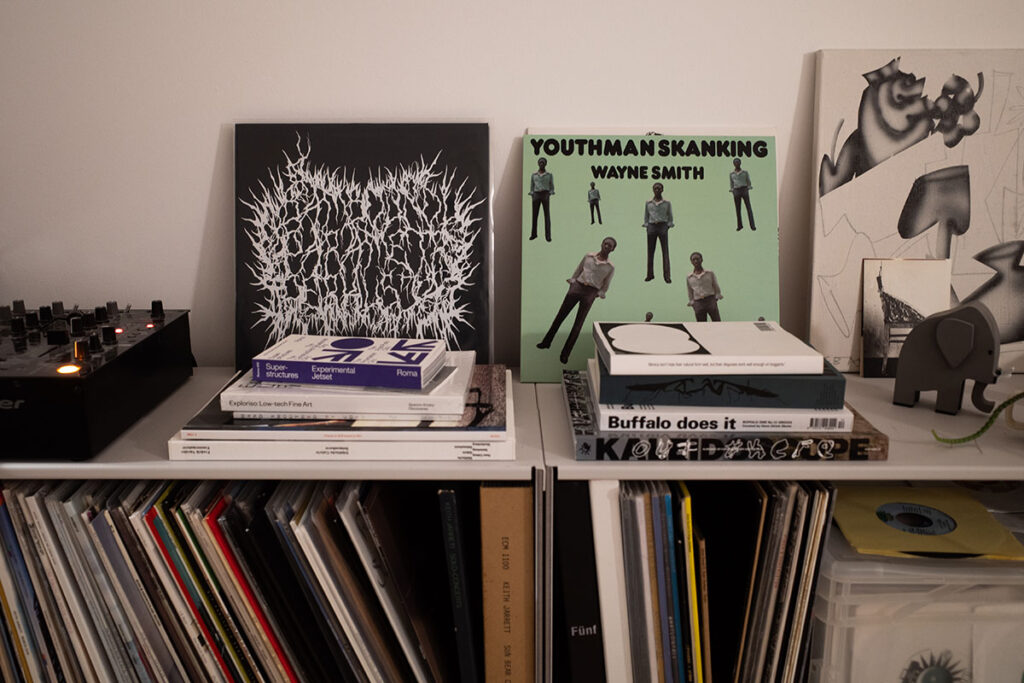
Do either of you guys do a radio show currently?
Martin: Yeah we both had our show together that we’re not doing anymore; it was a dubstep-themed show. Then we had solo shows each of us which are no longer, and now for a few months we’ve been doing a label show on Radio 80000 called Roaming Course. It’s a monthly show that we take turns doing.
Max: It was also hit by the pandemic I must say.
Martin: Yeah, but generally doing mixes is something we really enjoy because you can listen to a lot of music but you also end up finding new gems. Then you play it on the show and you can tag an artist and you might get in contact with them via Instagram or whatever. This part of connecting with the whole scene and the global scene. It’s an aspect that’s a lot of fun.
What are some things you're excited about musically that you're listening to?
Max: Since we did this Fazer drums stuff I’m really into drum records lately. I really like this group Tomaga, they did a record called Extended Play 1. Tomaga is a drummer based in London called Valentina Magaletti and another guy Tom Relleen. That’s a very good record. She has a solo one on Nicolas Jaar’s label ‘Other People’ called Valentina Plays the Batterie Fragile. There she plays on like a ceramics set; it’s a really really good record. Then there’s another one of her with a very good drummer from Switzerland, Julian Sartorius, called Sulla Pelle.
Then, of course, a lot of dub records, Jah Shaka and stuff like that. That’s what I’m listening to, drums and reggae.
Martin: One track I was listening to a lot was a new release by Andras from Melbourne that Public Possession is putting out. I work part-time at their office, depending on how much is going on, for one or two days a week doing kind of label management stuff. There’s a new release by Andras. It’s just two songs “Scones” and “Scallops” and the B-side, “Scallops,” is the track.
He always manages to make it sound like obviously a little mainstream and kitschy but in a way that it still feels progressive and interesting and musically pleasing.
Martin: I listen to that track a lot, but apart from that I’m listening to a lot of different stuff and digging, you know?
Max: You like a lot of like singing these days, I realized.
Martin: Me?
Max: Chorus singing — how do you say that like this? I can’t really describe it but I definitely have an image in mind of what Martin likes these days.
Martin: I was listening to a saxophone player from New York called Ingrid Laubrock. She’s German but moved to New York I think 10 years ago or something. During the lockdown she’s been recording improvisations with the drummer Tom Rainey and they put it all on on bandcamp. This is really really good stuff I like listening to.
We were doing almost daily stories when we were making coffee and we would post a story together with any song, and we’ve been talking about doing a playlist with all the songs featured in these stories. In situations like this it would become handy to have an archive, because these are often tunes we’re raving about in a certain moment.
Max, Do you want to talk about the coffee feature?
Max: Yeah, it became somehow a signature thing for us to do these coffee posts. We definitely said that we need to do a playlist on Spotify and then we thought maybe we can do some merchandise or something. Then we thought, “Hey we have a good coffee shop in the neighborhood.” We have a really good connection to the owner and we thought maybe we can do a special coffee collaboration.
Martin: It’s also a roastery.
Max: To have some kind of Ethiopian filter brew coffee with our playlist or some collaboration project.
Have you talked to them?
Max: Yeah, I proposed the idea to him and he was up for it.
Martin: Just do some basic brand building you know?
If you guys do get a bean collaboration, please send it over.
Max: Once we have the coffee, we’ll send it over to you.
Listen to a playlist with selections from Squama founders Max & Martin and follow them for the latest release info.
Instagram: https://www.instagram.com/squama.rec/
Bandcamp: https://squamarecordings.bandcamp.com/




